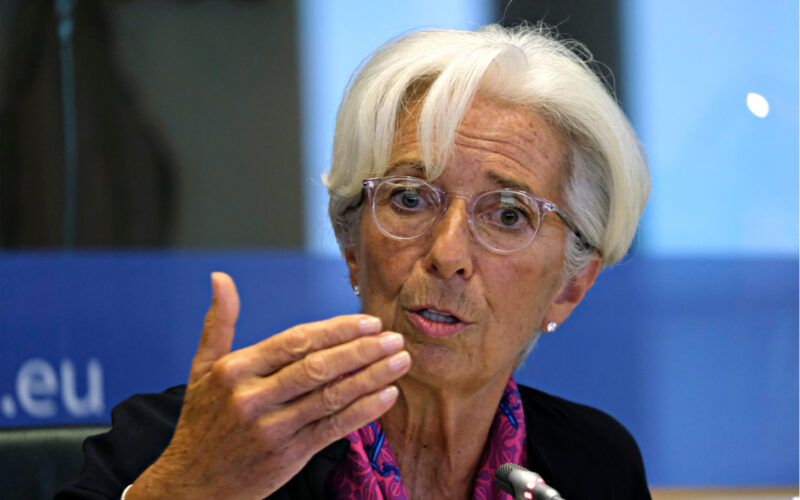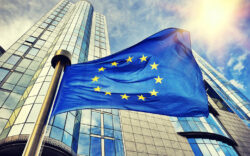Today, we take on the French in the guise of European Central Bank (ECB) President Christine Lagarde. But, if you prefer the Germans, check out this Southbank Live recording.
Either way, it seems the Europeans are doing their best to serve up some trouble for financial markets in coming months. So, perhaps you should be aware of both…
But, as a German, I’m going to focus on the French, for my part…
Not so long ago, Christine Lagarde was one face of the tri-headed monster known as the Troika. The International Monetary Fund (IMF), which she headed back in those days, dictated terms to southern Europe as it had in Asia in the days of the Asian Financial Crisis. The other two faces of the monster were the ECB (under the leadership of Jean-Claude Trichet and Mario Draghi) and the European Commission.
Protests, self-immolations and eventually surrender were the response. And I’m not sure which was worse.
Before her stint setting southern Europe alight, Lagarde was busy committing the crime of financial negligence while serving as French finance minister.
These days, Madame Lagarde has very much switched sides. Now she creates the money to keep southern Europe afloat, financing their financial negligence without any conditions attached.
But she is also stuck in a Catch-22. I call it the Catch-22 of central banking. It’s an inherent contradiction which is as impossible to untangle as a set of diabolos after a children’s birthday party.
You see, central bankers have decided they will tighten monetary policy once inflation is expected to kick off in the future. But any tighter monetary policy would, of course, rein in that inflation.
Do you see the conundrum? If you expect something, but its very occurrence precludes it from happening, do you really expect it to happen at all? And can it really happen? Will it ever happen?
If that sounds odd, you’ve got the right idea. Back to it in a moment.
First, if you’re looking at your credit card balance and thinking that inflation kicked off months ago, well, even the government statistics confirm this by now.
But you’re missing the point. You see, inflation has still not been high enough for long enough. Central bankers want to see a persistent level of expected inflation over time before they increase interest rates.
That is, they want financial markets and institutions to price in a high level of inflation in inflation expectations. Here’s a quote from the Financial Times which explains this, with my emphasis added:
[The ECB] will not raise rates until inflation is expected to hit or exceed the target in at most 18 months and then stay there (formally, from the midpoint to the end of the ECB’s two-to-three year forecast horizon). If you want a technocrat’s paraphrase of waiting to see the white in the eyes of inflation, you don’t get better than this.
There’s plenty wrong with this policy. It would destroy the bond market, for a start. If bonds expected inflation of 2%, well, they wouldn’t be trading at negative yields for long. And that shift would be a very large one, causing all sorts of trouble in financial markets.
But there is something more theoretically wrong with it too. And, for once, theoretically means “more interesting”.
Consider this: do you expect inflation to occur if you also expect interest rates to be increased to rein it in?
There’s a precise distinction there. If you know central bankers will raise interest rates once inflation is at the level they’re targeting, then you’d also expect inflation to come back down again too. And so you’re not really expecting inflation to rise at all then, are you?
You’re expecting inflation to rise, central bankers to tighten, and then inflation to come back down. And so your inflation expectations don’t rise to the required level to trigger a monetary policy tightening at all.
On the one hand, yes, you do expect inflation to rise. If the central bank does nothing, then inflation would accelerate.
On the other hand, no, you don’t expect inflation to actually materialise, because the central bank will act to rein in inflation if it does arrive.
Thus we arrive in a completely bizarre world where expecting something precludes it from happening at all.
It’s a Catch-22, worthy of the exceptional novel of that name, which is about a remarkably similar situation.
Here’s the relevant quote from Joseph Heller’s brilliant work, which captures the situation central bankers face too. It’s about an air force pilot called Orr who would be grounded if he is declared insane, but the very act of requesting this proves his sanity:
There was only one catch and that was Catch-22, which specified that a concern for one’s safety in the face of dangers that were real and immediate was the process of a rational mind.
Orr was crazy and could be grounded. All he had to do was ask; and as soon as he did, he would no longer be crazy and would have to fly more missions.
Orr would be crazy to fly more missions and sane if he didn’t, but if he was sane he had to fly them. If he flew them he was crazy and didn’t have to; but if he didn’t want to he was sane and had to.
Thus, the Catch-22 is enough to make anyone mad.
Now, consider the next level up.
Because the ECB’s policy actions are of course priced into inflation expectations, for the level of inflation which would make the ECB raise rates to become the expected level of inflation, it would require the ECB to lose control of inflation.
I’m sorry it’s confusing, but it’s important: For inflation expectations to spike, the market would have to anticipate the ECB is unable to rein in the inflation it allows to take hold. The inability to rein in inflation has to become part of the expected outcome.
Thus, central bankers will only get their inflation if they are unable to stop it thereafter…
This is what makes it so funny when Lagarde, asked about inflation expectations as measured by swaps (a derivative) responds like this:
We look at all the forecasts, the market survey, the analyst survey, the forecasters numbers. We look at all of that, and we also look at what other institutions are producing, because we don’t want to be data slaves, we are data-dependent in our policy determination, but we want to have a look at a whole range of such data.
I would like to submit that Madame is very much a data slave. And she’s about to get a right flogging by the data when she gets the inflation expectations she’s wishing for. Because when she does, it’ll be too late to stop it.
The Catch-22 novel is partially about the insanity of war and how it messes with incentives. Well, the war on deflation and Covid has done much the same. Financial markets are now full of strange incentives. And, therefore, strange outcomes.
Enough of untangling the theory. Back in the real world, when it comes to the topic of quantitative easing (QE) policy, the ECB …oh, …no, wait, things are a bit bizarre here too…
The ECB has announced it would buy less European bonds under its QE programs. But Lagarde also declared this is not tapering…
Financial Times:
European Central Bank president Christine Lagarde said “the lady isn’t tapering”, reassuring bond investors even as the ECB said it would buy fewer bonds in a sign of confidence in the eurozone’s economic recovery.
If that’s not a tapering, what is?
[Gets dictionary]
“large, herbivorous mammal, similar in shape to a pig, with a short, prehensile nose trunk.”
No, wait,..
“to diminish gradually”.
Indeed.
So, is the ECB gradually diminishing its QE policy?
The Financial Times:
After a two-day meeting of its governing council, the ECB said on Thursday it had decided to move to “a moderately lower pace” in its €1.85tn pandemic emergency purchase programme (PEPP) from the €80bn-a-month level it has run at since March.
Certainly seems like it.
[Back to the dictionary to look up “diminish”]
“to lessen the authority, dignity, or reputation of”
Well, I suppose that’s close. But here’s the one:
“to make less or cause to appear less”
Seems quite spot on to me! And yet:
“This is not a tapering decision,” said Elga Bartsch, head of macro research at the BlackRock Investment Institute. “Asset purchases look here to stay as the new policy framework paves the way for looser-for-longer monetary policy in the euro area.”
Looser for longer!?
The thought police are certainly out in force…
But, as far as I’m concerned, Madame Lagarde is a tapering data-slave in a Catch-22. With a shady past, I might add.
I wonder what the future might hold for her…
President of the European Commission?

Nick Hubble
Editor, Fortune & Freedom




